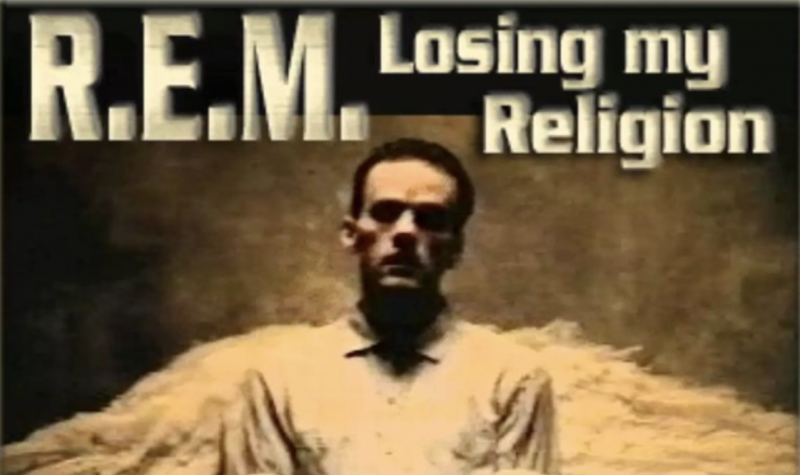R.E.M. and “Losing My Religion”: A Deep Dive into an Iconic Song

R.E.M., one of the most influential alternative rock bands of the late 20th century, crafted a legacy that has left an indelible mark on music history. Among their extensive catalog, “Losing My Religion” stands out as a defining track, encapsulating the band’s unique sound and lyrical depth. This article explores the origins, impact, and legacy of both R.E.M. and their quintessential song.
Formed in Athens, Georgia, in 1980, R.E.M. consisted of Michael Stipe (vocals), Peter Buck (guitar), Mike Mills (bass), and Bill Berry (drums). The band quickly gained a following with their jangly guitar sound and enigmatic lyrics, becoming pioneers of the alternative rock movement. Early albums such as Murmur (1983) and Reckoning (1984) showcased their distinctive style and garnered critical acclaim.
By the late 1980s, R.E.M. had transitioned from college radio favorites to mainstream success. Their 1987 album Document featured the hit single “The One I Love,” which was a significant breakthrough. However, it was their 1991 album Out of Time that propelled them to global stardom, largely thanks to the phenomenal success of “Losing My Religion.”
“Losing My Religion” was released as the lead single from Out of Time on March 19, 1991. Despite its unconventional sound and structure, the song became a massive hit, reaching No. 4 on the Billboard Hot 100 and earning R.E.M. international acclaim.
The song’s title is derived from a Southern expression meaning losing one’s temper or patience. Contrary to some interpretations, it does not reference a literal loss of religious faith. Instead, the lyrics convey a sense of unrequited love and existential angst, themes that resonated deeply with listeners.
Musically, “Losing My Religion” is notable for its use of the mandolin, played by Peter Buck. This choice gave the song a distinctive sound that set it apart from other contemporary rock tracks. The haunting melody and Michael Stipe’s plaintive vocals combined to create a track that was both haunting and memorable.
Upon its release, “Losing My Religion” received widespread critical acclaim. The song’s introspective lyrics and unique instrumentation were praised, and it quickly became a staple on radio and MTV. The accompanying music video, directed by Tarsem Singh, further enhanced the song’s mystique with its surreal, religious imagery and artful cinematography.
“Losing My Religion” garnered several awards, including two Grammy Awards in 1992 for Best Short Form Music Video and Best Pop Performance by a Duo or Group with Vocal. It also helped Out of Time win the Grammy for Best Alternative Music Album, solidifying R.E.M.’s status as one of the leading bands of the era.
Throughout the 1980s, R.E.M. released a series of albums that steadily built their reputation. Albums like Reckoning (1984), Fables of the Reconstruction (1985), and Lifes Rich Pageant (1986) showcased their evolving sound and lyrical complexity. The 1987 album Document marked a commercial breakthrough with the hit single “The One I Love,” leading to greater mainstream success.
The early 1990s were a transformative period for R.E.M. Their 1991 album, Out of Time, catapulted them to global stardom, largely due to the success of the single “Losing My Religion.” This song, with its haunting mandolin riff and introspective lyrics, became an anthem of the era and reached No. 4 on the Billboard Hot 100. The album also featured other notable tracks like “Shiny Happy People” and “Near Wild Heaven.”
Following Out of Time, R.E.M. released Automatic for the People in 1992, an album often regarded as their masterpiece. With a more somber and reflective tone, the album included classics like “Everybody Hurts,” “Man on the Moon,” and “Nightswimming.” Automatic for the People was both a commercial and critical triumph, solidifying R.E.M.’s place in rock history.
More than three decades after its release, “Losing My Religion” remains one of R.E.M.’s most beloved songs. It has been covered by numerous artists across various genres and continues to be a staple of their live performances. The song’s enduring popularity is a testament to its emotional depth and musical innovation.
As the 1990s progressed, R.E.M. continued to evolve their sound. Albums like Monster (1994) and New Adventures in Hi-Fi (1996) demonstrated their willingness to experiment with new styles and themes. Despite facing challenges, including drummer Bill Berry’s departure in 1997, the band persevered and continued to release music that resonated with fans.
R.E.M.’s post-Berry era included albums such as Up (1998), Reveal (2001), and Around the Sun (2004). While these albums received mixed reviews, they showcased the band’s commitment to artistic growth and exploration. Their 2008 album, Accelerate, was a return to a more rock-oriented sound and was well-received by both critics and fans.
In 2011, R.E.M. announced their amicable split, bringing an end to a remarkable 31-year career. Their final album, Collapse into Now (2011), served as a fitting conclusion, reflecting their rich musical journey and enduring influence.
R.E.M.’s legacy is profound. They are credited with helping to shape the alternative rock genre and paving the way for countless bands that followed. Their music continues to inspire new generations of artists and fans alike. Songs like “Losing My Religion,” “Everybody Hurts,” and “Man on the Moon” remain timeless, embodying the band’s ability to capture the human experience in all its complexity.
R.E.M. disbanded amicably in 2011, leaving behind a rich legacy that has influenced countless musicians and bands. “Losing My Religion” stands as a testament to their ability to blend introspective lyrics with compelling melodies, creating music that resonates across generations.
R.E.M.’s “Losing My Religion” is more than just a song; it’s a cultural touchstone that encapsulates the band’s artistic vision and the spirit of an era. Its enduring appeal lies in its unique sound, poignant lyrics, and the universal themes of love, loss, and self-discovery. As we continue to navigate the complexities of modern life, “Losing My Religion” remains a timeless reminder of the power of music to articulate our deepest emotions.